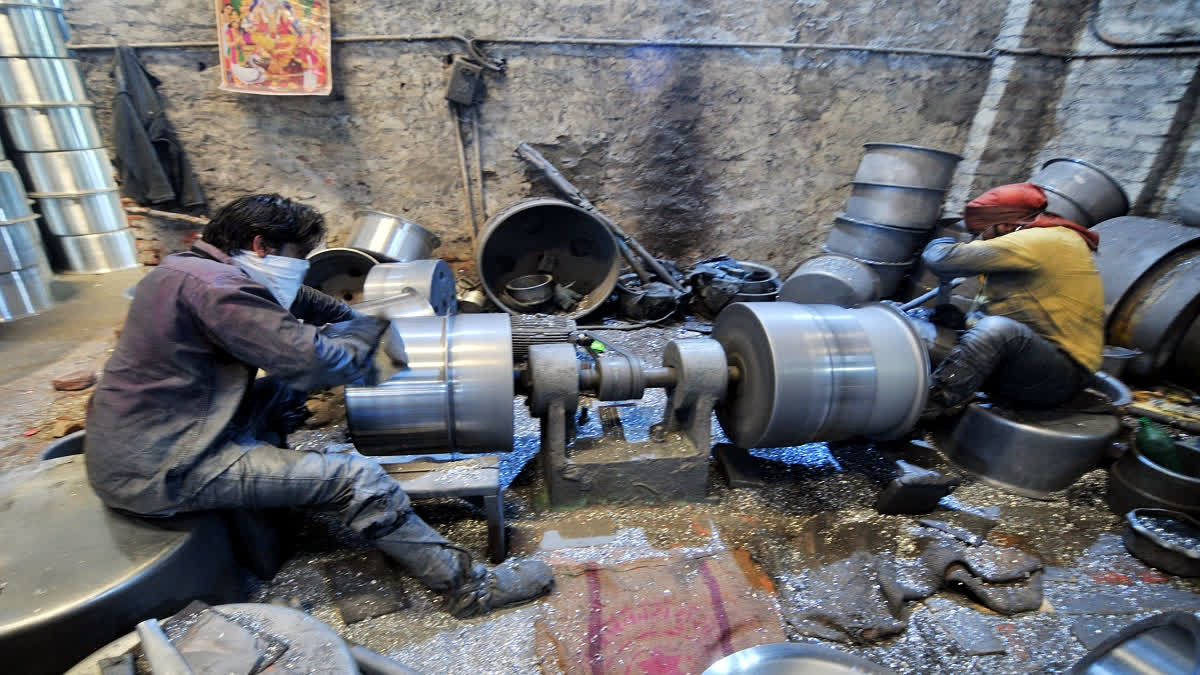Micro, Small, and Medium Enterprises (MSMEs) play a crucial role in the global economy, accounting for 90 per cent of businesses, 60 to 70 per cent of employment, and 50 per cent of GDP worldwide, according to the United Nations.
As per the MSME Udyam registration portal as of July 12, 2024, 4.70 crore MSMEs registered (which includes the Informal Micro Enterprises (IMEs)), creating employment of more than 20.33 crore. In Andhra Pradesh and Telangana, 8,79,836 and 9,54,226 MSMEs are registered respectively on the MSME portal. In Telangana, Hyderabad District has the maximum units of 173707 while Mulugu District has 3335 units, which is the minimum. Similarly in Andhra Pradesh, Krishna District with highest units of 66909 while Alluri Sitharama Raju District has the lowest units at 2688.
These enterprises are the backbone of the nation contributing approximately 30 per cent to India's Gross Domestic Product (GDP). The Government of India have been implementing a robust array of initiatives aimed at bolstering the Micro, Small, and Medium Enterprises (MSME) sector, recognising its pivotal role in the economy. These efforts range from financial support and procurement policies to capacity building and market integration. Despite all these, still MSME sector still needs to improve a lot on leveraging technology for business development in various ways.
MSMEs Can Perform Better With Technology
Industry Revolution 4.0 (IR 4.0) focuses on the integration of digital technologies, automation, and data exchange in manufacturing processes. This transformative trend encompasses cyber-physical systems, the Internet of Things (IoT), cloud computing, and more. Though use of correct technology for businesses can lead enterprises touch sky-high success, as accurately stated by Prime Minister Narendra Modi, "I see technology as a means to empower and as a tool that bridges the distance between hope and opportunity".
Since the early 2010s, the adoption of Industry 4.0 technologies has been gradually gaining momentum in India, with both the government and private sector making investments and efforts to drive the digital transformation of the manufacturing industry, its full advantages are not yet explored. Though we have not fully adopted Industry 4.0, already Industry 5.0 is in place to help people work alongside robots and smart machines. It's about robots helping humans work better and faster by leveraging advanced technologies like the Internet of Things (IoT) and big data. It adds a personal human touch to the Industry 4.0 pillars of automation and efficiency.
To revolutionise, MSMEs have to adopt and operate on emerging technologies which offer tools that enhance efficiency, flexibility and growth potential, emphasising digitalisation, sustainability, and innovation, which reflects the evolving needs of businesses and consumers alike. Some of the pillars of IR 4.0 are highlighted for quick adoption for Strategic digital adoption.
Cloud computing provides affordable and secure access to sophisticated IT infrastructure and is considered as backbone of all transformative technologies. Artificial Intelligence (AI) and Machine Learning (ML) are also playing very important roles in transforming MSMEs. These technologies automate routine tasks, provide insights through data analytics, and enhance decision-making processes for the management. For instance, AI-driven chatbots manage customer inquiries 24/7, freeing human resources for more complex tasks. Predictive analytics tools help businesses forecast demand, manage inventory and optimise supply chains, thereby improving overall operational efficiency.
The Internet of Things (IoT) technology connects devices and systems, enabling real-time monitoring and data collection. MSMEs can leverage IoT for various applications, such as managing logistics, monitoring equipment health and improving energy efficiency. IoT-enabled sensors in manufacturing can detect equipment malfunctions before they lead to costly downtimes, ensuring smooth operations and maintaining productivity.
Blockchain technology is gaining prominence as it offers MSMEs enhanced security, transparency and efficiency in transactions. It is particularly beneficial for supply chain management, providing a tamper-proof record of product history to improve traceability and reduce fraud. Additionally, blockchain can streamline financial transactions, reducing the costs associated with intermediaries and enhancing trust in digital transactions.
As online shopping continues to grow, many MSMEs are taking advantage of e-commerce platforms to access new markets and expand their reach.
Sustainability And Green Practices
There is an increasing number of small businesses that have taken up sustainable practices to cater to consumer needs while others are committed to reducing their carbon footprint with environmentally friendly practices
How Can MSMEs Prepare For These Trends In 2024?
MSMEs should assess their digital capabilities, and pinpoint gaps in eCommerce, online marketing, and data management. They should allocate resources for software, tools, and equipment, favouring scalable, cost-efficient cloud-based solutions. Also, updating staff through online courses ensures they can effectively leverage new technologies.
